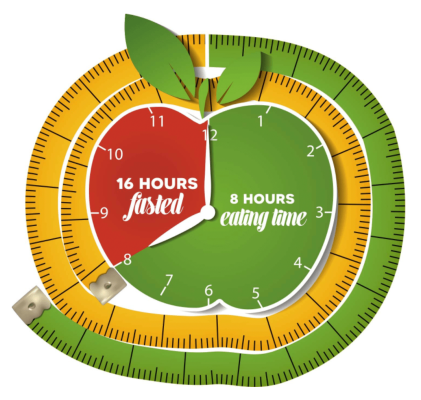Game Changer (Intermittent Fasting)

Game Changer
People often ask me what is different about my program than other “diet” programs. Why will my program work when all others have failed them? What special food do I use, what magic pill do I prescribe, what cleanses, shakes or juices do I have that will do the trick?
The answer is complicated because humans are complicated. Any program that offers a simple solution is probably not all it promises to be, except if that promise is a box of food and an empty wallet. What I offer is a solid understanding of human physiology and how to use your body’s normal responses to get to your desired outcome: weight loss.
This is different for every person and there are so many variables (food, medicines, exercises, hormones, etc.), but a simple example is using intermittent fasting to specifically reduce insulin levels which improves weight loss.
Intermittent fasting has been used for centuries by many different cultures for health and religious reasons. It simply refers to a time where a person abstains from eating. In the Muslim religion, Ramadan is a good example. During the time of Ramadan (April in 2022), Muslims do not eat from the hours of sunup to sundown. In the U.S., intermittent fasting is often used for health purposes with common periods of fasting lasting 16 to 24 hours.
How does it work? Each time we eat, we cause our insulin levels to go up. How high and how fast the insulin spikes are dependent on the food we eat. A loaf of bread will cause insulin to go up faster and higher than an apple. Insulin is the fat storing hormone in the body. It allows our body to bring glucose from the bloodstream into the cells and store the extra calories (energy) as fat in our cells. We would die without insulin. It is what allows us to store energy (fat) for use in times of famine or starvation.
However, insulin also has a secondary effect. When insulin levels are elevated, it does not allow us to access our fat stores for energy. Insulin is focused solely on storage of energy. Most of the time this would be fine as usually when your insulin levels are high you have just eaten and have plenty of energy from the calories you just ate. However, we are now finding significant numbers of people who are insulin resistant and have elevated levels of insulin all the time. This means they cannot access their fat stores for energy, making it hard, if not impossible to lose weight.
Correctly identifying and treating people with insulin resistance is crucial to their success in weight loss. Many of these patients have diabetes and pre-diabetes, however a portion do not and only show elevated insulin levels or blood sugars that easily rise and fall. By running the appropriate tests and determining a patient’s insulin sensitivity, I can make recommendations that will drastically improve their likelihood of long-term successful weight loss.
One dietary treatment is intermittent fasting. Intermittent fasting allows insulin levels in the blood to fall and the body to access fat stores for energy. The longer the time in the fasting phase, the longer the body has access to fat storage. This not only leads to weight loss but improves the body’s sensitivity to insulin when it is present, reducing patients’ Hemoglobin A1C’s (average blood sugars over 3 months). Intermittent fasting can even help prevent diabetes.
When I talk with patients about intermittent fasting, I help them understand that there are many ways to go about their fasting periods. Many are worried about being hungry or “starving” and certainly, that is NOT our goal. In fact, diets that cause the body to go into “starvation mode” – such as many very low calorie, prepackaged fad diets cause the body’s metabolic rate to slow way down. This is the opposite effect of what happens with intermittent fasting when properly done under a physician’s supervision. Our goal is to increase your metabolic rate (burn more calories) while allowing your body to access your fat storage for the additional energy it needs. No one needs to “starve” and there are many tools to help you achieve your goals such as proper meal timing, maintaining hydration and electrolyte levels and even foods such as FAST bars.
Intermittent fasting isn’t for everyone, but it is one tool in a wide selection of helpful techniques known to physicians practicing medical weight loss. So, when people ask how my program is different, my answer is that knowledge is the game changer. Having a physician’s understanding of human pathophysiology and additional training in obesity medicine is the magic bullet. After that, success involves just a tincture of time and a motivated patient.